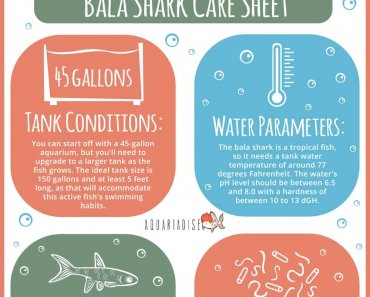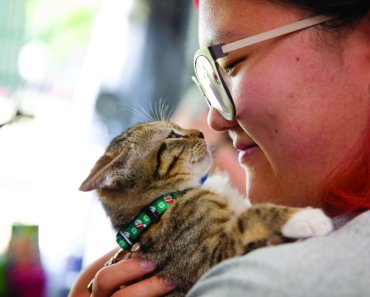Rather than having your adult dog or cat vaccinated every year, consider these important factors and make an informed decision that will optimize his health and well-being.
We’ve been hearing a lot over the past decade or so about the risks associated with over-vaccination in dogs and cats. A growing number of animals parents now think twice before subjecting their four-legged friends to yearly boosters, once their animals have had their core vaccines as youngsters. For those who are still on the fence, this article explores important factors to consider when creating vaccination strategies for adult dogs and cats.
Benefits and risks of vaccination
There is little doubt that the application of modern vaccine technology has permitted us to effectively protect companion animals (and people) against serious infectious diseases. However, vaccinations are increasingly recognized (albeit still rarely) as contributors to immune-mediated blood, skin, bowel, bone, and joint diseases, bone marrow and organ failure, central nervous system excitation, and behavioral aberrations. Genetic predisposition to these adverse events (termed vaccinosis) has also been documented. It must be recognized, however, that we have the luxury of expressing these concerns today only because the risk of disease has been effectively reduced by the widespread use of vaccination programs. Nevertheless, the accumulated evidence indicates that vaccination protocols should no longer be considered a “one size fits all” program.
In cats, while adverse vaccine reactions may be less commonly seen, aggressive tumors (fibrosarcomas) can occasionally arise at the site of vaccination, as they can in dogs. Other cancers, such as leukemia, have been also been associated with vaccines.

Vaccine dosage in dogs – size matters
Dogs are currently all given the same quantity of vaccine, regardless of their size or breed. Not surprisingly, more adverse events have been documented in smaller dogs. Logically, toy and small dogs should require less vaccine than giant and large dogs in order to be fully immunized. Similarly, puppies (and kittens) should require less vaccine volume to immunize than adults do.
In support of the size hypothesis, I have studied healthy, adult, small breed dogs who had not been vaccinated for at least three years. The dogs were given a half-dose of bivalent distemper and parvovirus vaccine, whereby all of them developed increased and sustained serum vaccine antibody titers. Presumably, this approach would apply also to puppies, and further research is needed.
Vaccinate wisely, and only when needed
There is no such thing as an “up to date” or “due” vaccination. When an adequate immune memory has already been established, there is little reason to administer booster vaccines, and it would be unwise to introduce unnecessary antigen, adjuvant, and other excipients, as well as preservatives, by doing so. Serum antibody titers can be measured triennially or more often if needed, to assess whether a given animal’s humoral immune response has fallen below levels of adequate immune memory. In that event, an appropriate vaccine booster can be administered. For legally required rabies vaccines, these alternative options are often limited.

Vaccination can provide an immune response that is similar in duration to that which follows a natural infection. In general, adaptive immunity to viruses develops earliest and is highly effective. Such antiviral immune responses often result in the development of sterile immunity and the duration of immunity (DOI) is often lifelong. In contrast, adaptive immunity to bacteria, fungi, or parasites develops more slowly. The DOI is generally short compared with most systemic viral infections. Sterile immunity to these infectious agents is less commonly engendered. Titers do not distinguish between immunity generated by vaccination and/or exposure to the disease, although the magnitude of immunity produced just by vaccination is usually lower.
 In adult dogs and cats, core vaccines should not be given more than every three years, and serological and challenge studies actually indicate that protection likely lasts much longer than that — from seven to nine years. With this in mind, measuring serum antibody titers is preferable to regular boosters.
In adult dogs and cats, core vaccines should not be given more than every three years, and serological and challenge studies actually indicate that protection likely lasts much longer than that — from seven to nine years. With this in mind, measuring serum antibody titers is preferable to regular boosters.
Compliance or resistance to current vaccine guidelines
The issues discussed above have been legitimately raised for over two decades, but why is this knowledge still considered controversial? Have veterinarians embraced the national and international policies on vaccination guidelines? Do dog and cats parents trust veterinarians to be up-to-date on these issues? Do they believe veterinarians have a conflict of interest if they derive income from annual booster vaccinations? While some veterinarians still tell their clients there is no scientific evidence linking vaccinations with adverse effects and serious illness, this fallacy confuses an impressionable client. On the other hand, vaccine and anti-vaccine zealots abound with hysteria and misinformation. Neither of these polarized views is helpful.
Veterinary practitioners may simply believe what they originally learned about vaccines and are therefore less inclined to change or “fix” what is perceived to be unbroken. Annual vaccination has been the single most important reason why the majority of people bring their dogs and cats to the vet’s for an annual check-up or “wellness visit”. When combined with a failure to understand the principles of vaccinal immunity, it is not surprising that attempts to change vaccines and vaccination programs have created significant controversy.
As stated by the American Animal Hospital Association’s 2003 guidelines: “No vaccine is always safe, no vaccine is always protective, and no vaccine is always indicated. Misunderstanding, misinformation, and the conservative nature of [the veterinary] profession have largely slowed adoption of protocols advocating decreased frequency of vaccination. Immunological memory provides durations of immunity for core infectious diseases that far exceed the traditional recommendations for annual vaccination. This is supported by a growing body of veterinary information as well as well-developed epidemiological vigilance in human medicine that indicates immunity induced by vaccination is extremely long lasting and, in most cases, lifelong.” These statements were groundbreaking at the time, and still apply today.
Vaccines should be individualized to each patient
“Vaccination should be just one part of a holistic preventive healthcare program for pets that is most simply delivered within the framework of an annual health check consultation,” said the late Professor Michael J. Day. “Vaccination is an act of veterinary science that should be considered as individualized medicine, tailored for the needs of the individual pet, and delivered as one part of a preventive medicine program in an annual health check visit.” Before vaccination, therefore, it’s important to consider your dog or cat’s individual risk of exposure to the disease in question, along with your geographical location, and lifestyle factors.
While vaccines have traditionally been a regular part of every dog and cat’s annual wellness check, things are changing. The health risks of over-vaccination, the growing use of titer testing, and studies demonstrating vaccine durations of immunity lasting seven to nine years, are prompting more people to reconsider yearly boosters and work with integrative or holistic veterinarians to create vaccine programs tailored to the needs of their individual dogs and cats.




























